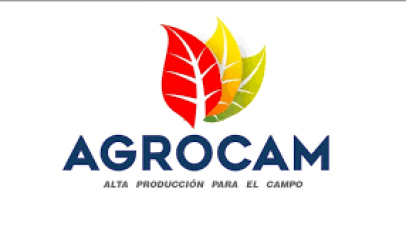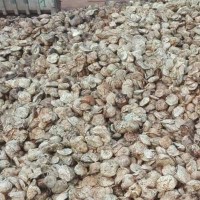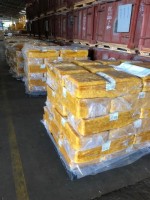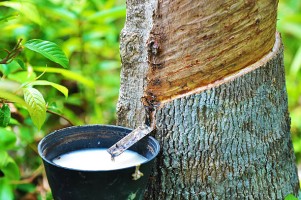Company Description
About AGROCAM
AGROCAM is a prominent leader in sustainable agriculture, located in Littoral, Cameroon. This company focuses on the production and export of quality Natural Rubber Cup Lump, Cocoa Beans, Palm Oil, and Palm Nuts. Commitment to excellence and customer satisfaction distinguishes AGROCAM within the industry.
Quality is a priority at AGROCAM. The Natural Rubber Cup Lump originates from responsibly managed plantations, ensuring purity and low moisture. Cocoa Beans undergo careful harvesting and processing to meet stringent quality benchmarks. Additionally, Palm Oil and Palm Nuts are recognized for their rich, natural attributes, suitable for various applications in both food and industrial sectors.
Sustainability drives AGROCAM's operations. The farming practices aim to reduce environmental impact, safeguard biodiversity, and support sustainable land use. By embracing eco-friendly methods, AGROCAM contributes positively to the planet while providing top-quality natural products.
AGROCAM values strong global relationships. Renowned for reliability and integrity, the company has cultivated partnerships with clients and suppliers worldwide. This commitment ensures exceptional service, timely deliveries, and solutions for diverse client needs. The expansive network guarantees consistent access to premium agricultural products.
Community support and innovation are integral to AGROCAM's mission. The company actively creates jobs, offers training, and invests in sustainable agricultural practices. This proactive approach enables AGROCAM to meet current market demands while remaining adaptable for future challenges.
Member Information
| Business Type | : |
|
| Founded in | : | 2007 |
| Employees | : | Above 1000 |
| Member Since | : | 19 Sep 2024 |
| Membership Type | : | Free Member |
| Business Category | : | Agro & Agriculture |
Company Overview
- Supplier
- Exporter
- Trading
The purpose of this Quality Control Policy is to ensure that all natural rubber cup lump, cocoa beans, palm oil, and palm nuts meet industry standards and customer expectations. This policy aims to maintain consistent product quality through a comprehensive quality management system that covers sourcing, production, storage, and transportation.
2. Scope
This policy applies to all employees, suppliers, and stakeholders involved in the production, procurement, handling, processing, and distribution of natural rubber cup lump, cocoa beans, palm oil, and palm nuts. It covers the entire supply chain from raw material sourcing to final delivery.
3. Quality Control Objectives
Ensure Compliance with Industry Standards: Adhere to national and international standards for the processing and production of natural rubber, cocoa beans, palm oil, and palm nuts.
Minimize Defects: Implement stringent control measures to reduce contamination, moisture content, and defects.
Customer Satisfaction: Deliver products that meet customer specifications in terms of quality, weight, moisture content, purity, and packaging.
4. Quality Control Guidelines by Product
A. Natural Rubber Cup Lump
Moisture Content: Ensure moisture content is within the acceptable range (below 5%) by periodic testing during collection and storage.
Contamination Control: Monitor for impurities such as dirt, bark, or foreign matter through manual and automated sorting.
Storage Conditions: Rubber cup lumps should be stored in clean, dry areas, away from direct sunlight and excess moisture to prevent deterioration.
Inspection and Sampling: Perform random inspections and sampling of rubber cup lumps to assess quality before processing.
Supplier Audits: Conduct regular audits of suppliers to ensure they follow best practices in rubber collection and initial processing.
B. Cocoa Beans
Fermentation and Drying: Cocoa beans must be properly fermented and dried to achieve an optimal moisture content of 6-7%.
Size and Uniformity: Ensure beans are of uniform size and free from defects such as mold, pests, or foreign particles.
Grading: Grade cocoa beans based on industry standards (Grade 1 or 2) before storage or shipping.
Storage: Store cocoa beans in well-ventilated, dry conditions with controlled humidity to prevent mold and insect infestation.
Inspection and Testing: Regularly inspect and test for moisture content, mold, or contamination before dispatch to ensure the beans meet export quality standards.
C. Palm Oil
Free Fatty Acid (FFA) Content: Monitor FFA content to ensure it remains within the acceptable range for crude and refined palm oil (typically below 5% for crude palm oil).
Color and Purity: Ensure the color of the palm oil is consistent and free from impurities. Regular checks for adulteration or contaminants are required.
Peroxide Value (PV): Test for peroxide value to monitor the freshness and prevent oxidation, ensuring a PV of less than 10 milliequivalents per kilogram.
Storage and Handling: Store palm oil in temperature-controlled environments, keeping it in stainless steel or food-grade containers to prevent spoilage or contamination.
Packaging: Use food-grade packaging materials that prevent leakage or contamination during transportation.
D. Palm Nuts
Kernel Quality: Ensure palm nuts are free from mold, insects, and physical damage. Verify that the kernel content is at an acceptable ratio compared to shell content.
Moisture Content: Ensure moisture content does not exceed 10%, to prevent spoilage or mold growth during storage.
Grading: Grade the palm nuts based on size, maturity, and oil content before processing or export.
Storage: Store palm nuts in dry, cool, and well-ventilated areas to prevent spoilage. Regular checks for moisture and pest infestation are required.
Processing Inspection: Conduct regular inspections during cracking and kernel extraction processes to ensure the separation is efficient and product integrity is maintained.
5. Quality Control Procedures
Sampling and Testing:
Random sampling should be conducted at various stages, including raw material intake, processing, and final product stages.
Testing should be conducted for moisture content, purity, contaminants, and relevant industry-specific parameters.
Documentation:
Keep detailed records of all quality inspections, audits, and test results. Records should include date, batch number, test results, and corrective actions taken, if necessary.
Supplier Monitoring:
Develop partnerships with trusted suppliers. Conduct regular audits and assessments to ensure they meet quality standards for raw materials.
Suppliers should be required to provide certifications or documentation verifying their compliance with industry and quality standards.
Training:
Provide ongoing training for all employees and stakeholders involved in handling, processing, and quality control to ensure adherence to best practices.
Corrective Actions:
In case of non-compliance, immediate corrective actions should be taken. Products that fail to meet quality standards should be quarantined, and root cause analysis should be performed to prevent recurrence.
6. Continuous Improvement
This policy will be reviewed annually to ensure that it remains current and effective. Continuous improvement initiatives will be implemented based on feedback from audits, customer complaints, and market trends.
7. Compliance
All employees, suppliers, and stakeholders must comply with this policy. Non-compliance may result in corrective actions, including the suspension of contracts or partnerships with suppliers.
8. Review and Revision
This policy will be reviewed on an annual basis to ensure alignment with industry standards, customer expectations, and regulatory requirements.




